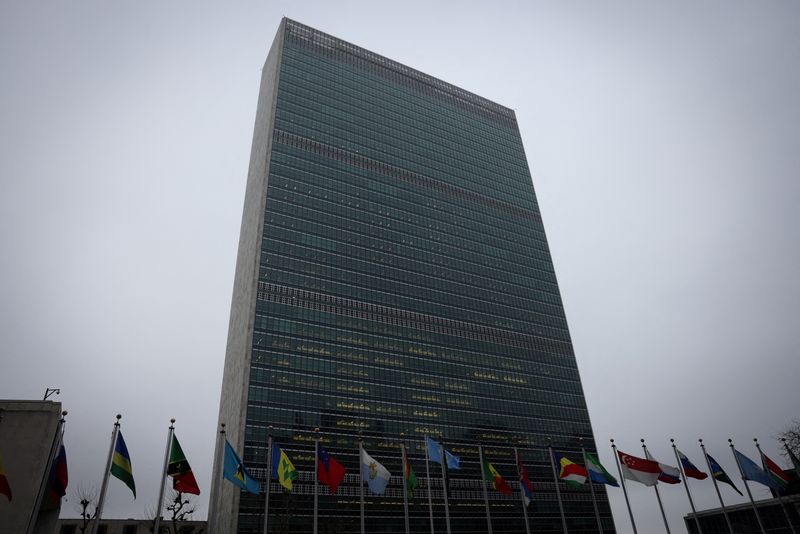UN adopts first global artificial intelligence resolution
2/2

FILE PHOTO: The United Nations building is pictured in New York City, U.S., February 23, 2023. REUTERS/Mike Segar/File Photo
2/2
MSFT
+0.97%
Add to/Remove from Watchlist
Add to Watchlist
Add Position
Position added successfully to:
Please name your holdings portfolio
Type:
BUY
SELL
Date:
Amount:
Price
Point Value:
Leverage:
1:1
1:10
1:25
1:50
1:100
1:200
1:400
1:500
1:1000
Commission:
Create New Watchlist
Create
Create a new holdings portfolio
Add
Create
+ Add another position
Close
By Alexandra Alper
(Reuters) – The United Nations General Assembly on Thursday unanimously adopted the first global resolution on artificial intelligence to encourage countries to safeguard human rights, protect personal data, and monitor AI for risks.
The nonbinding resolution, proposed by the United States and co-sponsored by China and 122 other nations, took three months to negotiate and also advocates for strengthening privacy policies, senior U.S. administration officials said, briefing reporters before the resolution’s approval.
“Today, all 193 members of the United Nations General Assembly have spoken in one voice, and together, chosen to govern artificial intelligence rather than let it govern us,” U.S. Ambassador to the United Nations Linda Thomas-Greenfield said.
The resolution is the latest in a series of initiatives – few of which carry teeth – by governments around the world to shape AI’s development, amid fears it could be used to disrupt democratic processes, turbocharge fraud or lead to dramatic job losses, among other harms.
“The improper or malicious design, development, deployment and use of artificial intelligence systems … pose risks that could … undercut the protection, promotion and enjoyment of human rights and fundamental freedoms,” the measure says. In November, the U.S., Britain and more than a dozen other countries unveiled the first detailed international agreement on how to keep artificial intelligence safe from rogue actors, pushing for companies to create AI systems that are “secure by design.”
Europe is ahead of the United States, with EU lawmakers adopting a provisional agreement this month to oversee the technology. The Biden administration has been pressing lawmakers for AI regulation, but a polarized U.S. Congress has made little headway.
In the meantime, the White House sought to reduce AI risks to consumers, workers, and minority groups while bolstering national security with a new executive order in October.
Asked whether negotiators faced resistance from Russia or China, the officials conceded there were “lots of heated conversations. … But we actively engaged with China, Russia, Cuba, other countries that often don’t see eye to eye with us on issues.”
“We believe the resolution strikes the appropriate balance between furthering development, while continuing to protect human rights,” said one of the officials, who spoke on condition of anonymity.
Like governments around the world, Chinese and Russian officials are eagerly exploring the use of AI tools for a variety of purposes. Last month, Microsoft (NASDAQ:MSFT) said it had caught hackers from both countries using Microsoft-backed OpenAI software to hone their espionage skills.








